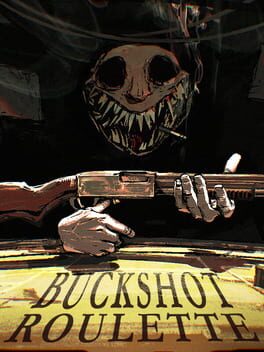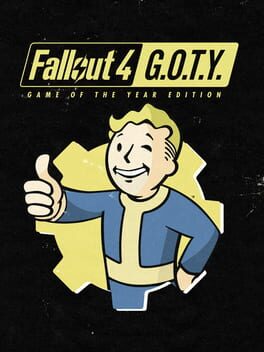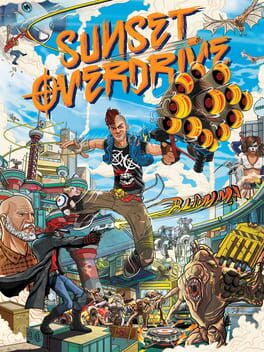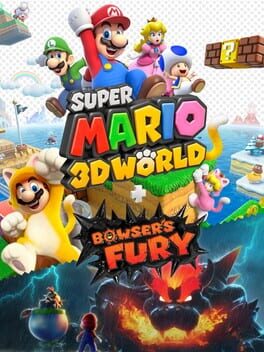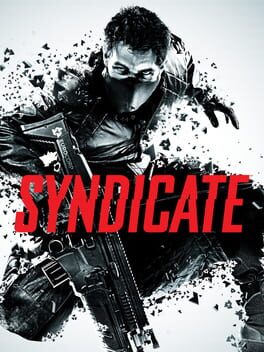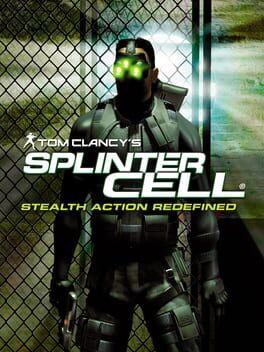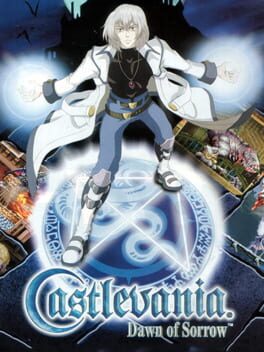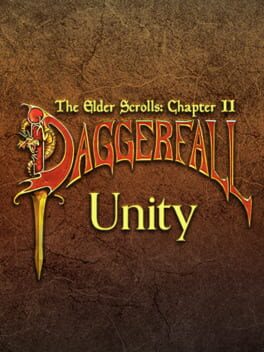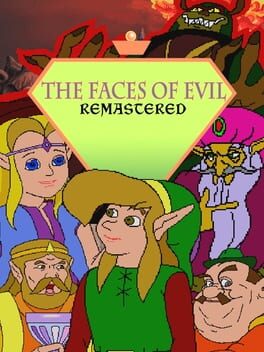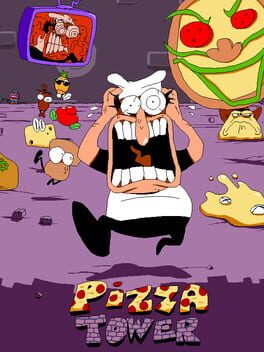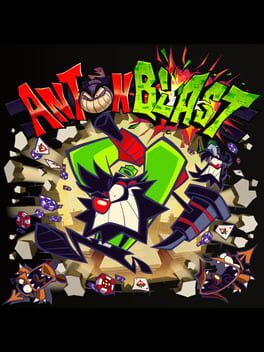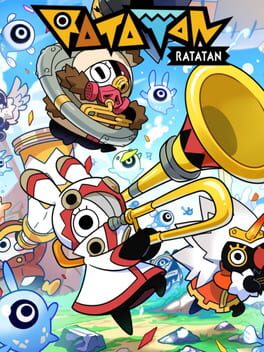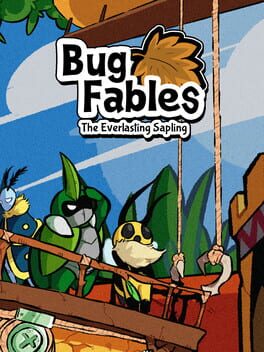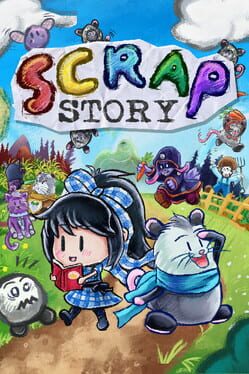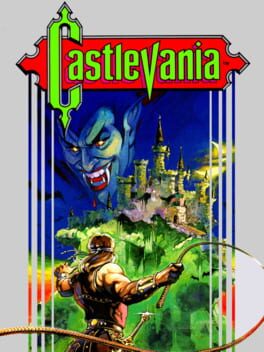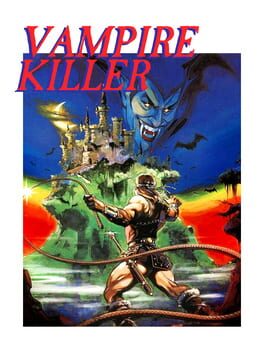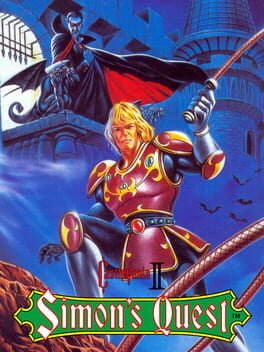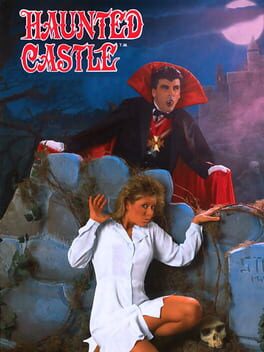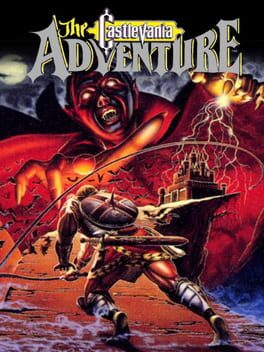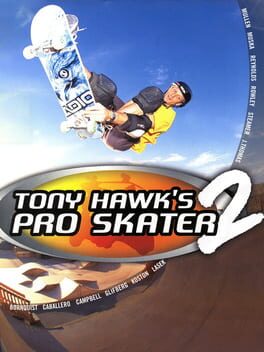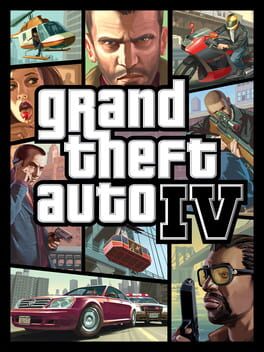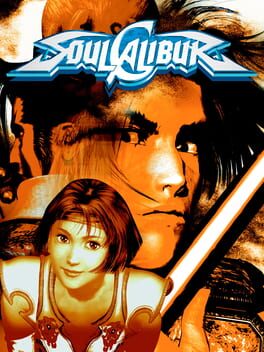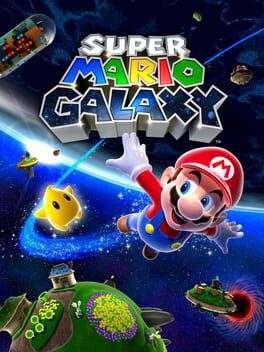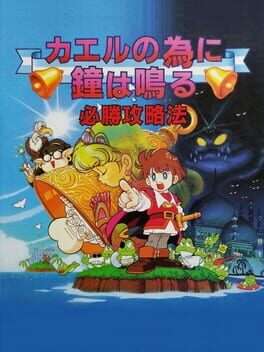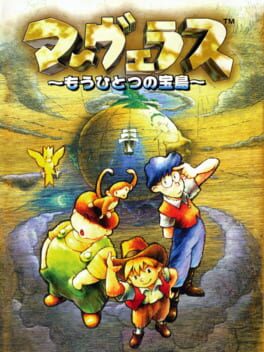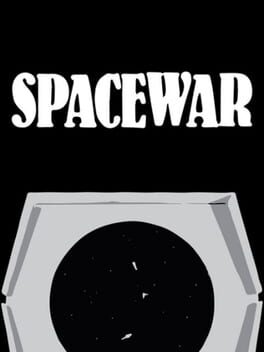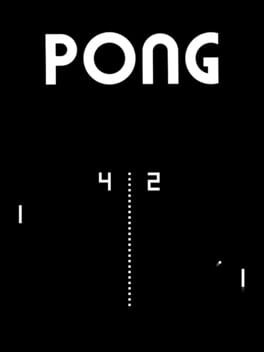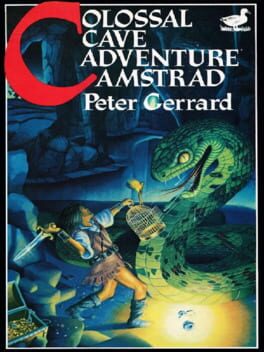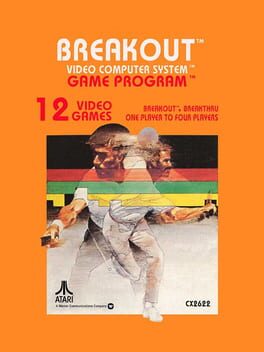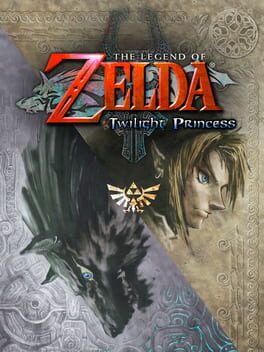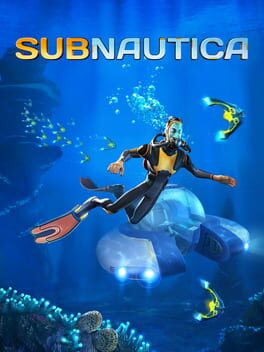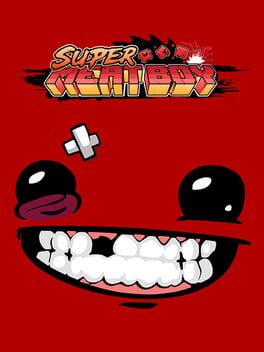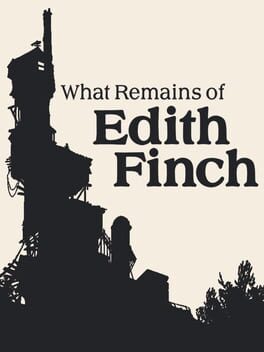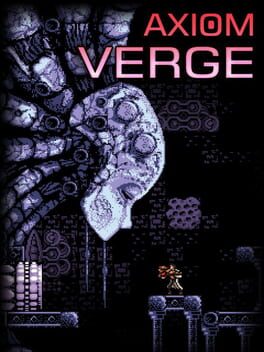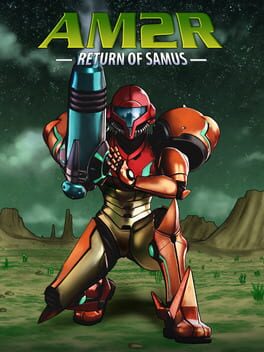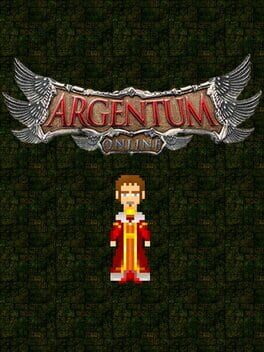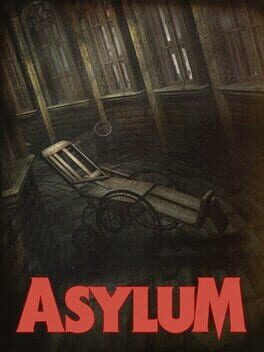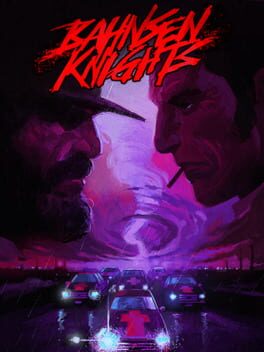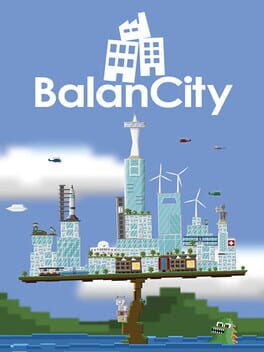109 reviews liked by NickNotFound
Buckshot Roulette
2023
Eu sempre ouvi falar que fallout 4 é uma desgraça para a franquia e é a pior coisa que já aconteceu, depois de 70 horas+ jogando... é legalzinho i guess? tipo tem todos os problemas que já falaram inumeras vezes: história e facções fraquissimos, falta de elementos de rpg, dialogos limitados e tal. O foda é que o resto é muito divertido, o combate até o presente momento é o melhor da bethesda (não é excelente mas é divertido, da pro gasto), a exploração continua viciante mesmo que eventualmente você percebe o layout das coisas (mutantes, raiders, robos, ghouls, repetir). Ah e a construção desse jogo é muito scuffed... mesmo que eu ainda assim fiquei umas 5-10 horas construindo casinha. Enfim fallout 4 é tipo o famoso jogo mundo aberto 7/10, mas é bem divertido especialmente com alguns mods.
o maior highlight fica para a DLC "Far Harbor" que é muito boa mesmo e tem tudo que o jogo base não tem.
o maior highlight fica para a DLC "Far Harbor" que é muito boa mesmo e tem tudo que o jogo base não tem.
Writing is bottom of the barrel. Pagliarulo is one of the worst writers working right now and he is next level bad here. With terrible writing and mediocre RPG choices you are left with a barely passable shooter and base builder. Fallout 76 is superior in that its just a shooter and doesnt have Preston Garvey.
No real room for role-play in this game. You feel very defined as a character. DLC once again the star of a Bethesda-Fallout but still pales in comparison to even FO3.
Base building mechanics are somewhat fun, but don't seem to work quite right - the maximum build size is an odd choice also - compared to say F76 where I can understand why it's warranted.
Ultimately, if you're looking for a fallout themed FPS base builder - here you go!
If you're after anything else, Fallout New Vegas!
Base building mechanics are somewhat fun, but don't seem to work quite right - the maximum build size is an odd choice also - compared to say F76 where I can understand why it's warranted.
Ultimately, if you're looking for a fallout themed FPS base builder - here you go!
If you're after anything else, Fallout New Vegas!
Hades
2018
Control
2019
Sunset Overdrive
2014
The apocalypse as party and fantasy. No philosophy or worries. in the city, of course, because modern shooting festivals have to be in south east asian countries or the american city in total shit, or unscrupulous mercenaries or zombies reimagined, very sad.
Imsomniac Games seems to be made up of 12-year-olds or 45-year-olds, or something like that, with no middle ground because the overall aesthetic oscillates between unrestrained noise and extravagant weapons that 12-year-olds would imagine as "cool" (perhaps) and the shameful idea of "party" and "hip" that 40-year-olds have in mind (for sure)
And it is curious the strange dichotomy generated by that gloomy vision is reflected in its displacement mechanics; tremendous verticality and smoothness with a lot of support points. I jump to several levels in the architecture, and suddenly the rails rule, and the architecture flattens.
This is one of those games that block my thoughts because of the grime they generate in me, no matter how hostile it sounds
Imsomniac Games seems to be made up of 12-year-olds or 45-year-olds, or something like that, with no middle ground because the overall aesthetic oscillates between unrestrained noise and extravagant weapons that 12-year-olds would imagine as "cool" (perhaps) and the shameful idea of "party" and "hip" that 40-year-olds have in mind (for sure)
And it is curious the strange dichotomy generated by that gloomy vision is reflected in its displacement mechanics; tremendous verticality and smoothness with a lot of support points. I jump to several levels in the architecture, and suddenly the rails rule, and the architecture flattens.
This is one of those games that block my thoughts because of the grime they generate in me, no matter how hostile it sounds
This thing is good, but it is also the epitome of this increasingly predominant logic that Nintendo has with its present and its past, a toymaker one, and not a craftsman who cares with affection for his games and ideas put into his creations, rather like that of a luxury company that offers disposable and immediate products with a careful presentation.
Here is the new one of the toy known as "SUPER MARIO 3D WORLD WOHHOHHUHOOO", with improvements that will make you not want to go back to the original Wii U, in fact, they do not want you to, nor will they want you to go back to this version of switch when remaster it again on their next generation of hardware.
This logic extends to the entire game itself because its approach to action, while satisfying on the spot, also reveals how little real thought went into the designers working on such a solid and simple foundation as Super Mario. 3d Land- That game was in good health, but it was addictive like pringles-.
Why is there a multitasking button [Run], [Use Powerup],[Pick Up Player]
[Throw Things/Player] on a controller with so many buttons?
Probably no one thought of it, but in 3DLand it worked, so here too, right?
Yeah, no, the truth is that it doesn't work that well. With so many different power ups that alter the way the game space is operated, objects to throw, enemies that need to be dealt with in different ways, and, most importantly, a multiplayer in which all this is multiplied and also adds the possibility picking and throwing other players to win levels in the (seemingly) funniest and most creative way... One can't rely on a multitasking button, it's just impossible. Because obviously it's not just about the actions you can perform with your character, but how those actions relate to and impact the environment, or in this case -action platforms- what the environment demands of you as a player.
And precisely that, the environment, the levels, the world, Why is this game called 3D WORLD?
Not even the world map, probably the freest interplay of all the level-structured Super Marios, offers a sense of the world. It's a minor detail, and I don't have much problem with this, I think that the sensation of the digital world is achieved through more resources than simple physical literalness, but I also think it illustrates another point that was dealt with on autopilot.
The levels capture very well the texture of super mario in my opinion: color, fluffiness, sound... Joy as a whole.
But also full of ideas that, while creative and enjoyable, are also disposable almost the moment they are presented, more articulated around the mobility/attack variations provided by the Powerups than the jump itself, and that's a problem, because if you don't get the necessary powerup in advance the level design turns out to be a little soft, and that coupled with the problems of the multitasking button leaves some absurdly frustrating moments for a game that, if it had a better interactive layout, would be even easier than 3D LAND. Apart from the moments where the game tries to create a directed action sequence in which we have to fight a boss or stay on a platform on rails while the camera beats us - you go out of frame, you're dead - they make me sick, There is no redemption there, neither here nor in almost any platform game, it is an absurd way of killing pacing.
In the end, I liked the game, and I give it 4/5 because of Bowsers Fury and also because from time to time I actively look for a Toylogic game, that is just plain fun. I will probably come back to this game with friends.
--------------------------------------
I haven't been a Nintendo believer for a decade, but this way of supercharging its sequels with mechanics that born and die in the moment which a level takes place is a super evil company move
"duh, Nintendo is a company"
Yes, but even so I would dare to say that Nintendo has not had its own ideas or approaches since the 80s. Rather, it has offered quite innovative pieces of hardware (Nintendo DS?) to share -or even take advantage of- the ideas of others producing works of studies external or minor that would enrich their own corporate image as well as their catalogs
"well, sure, but Nintendo was always like that deep down"
Here is the new one of the toy known as "SUPER MARIO 3D WORLD WOHHOHHUHOOO", with improvements that will make you not want to go back to the original Wii U, in fact, they do not want you to, nor will they want you to go back to this version of switch when remaster it again on their next generation of hardware.
This logic extends to the entire game itself because its approach to action, while satisfying on the spot, also reveals how little real thought went into the designers working on such a solid and simple foundation as Super Mario. 3d Land- That game was in good health, but it was addictive like pringles-.
Why is there a multitasking button [Run], [Use Powerup],[Pick Up Player]
[Throw Things/Player] on a controller with so many buttons?
Probably no one thought of it, but in 3DLand it worked, so here too, right?
Yeah, no, the truth is that it doesn't work that well. With so many different power ups that alter the way the game space is operated, objects to throw, enemies that need to be dealt with in different ways, and, most importantly, a multiplayer in which all this is multiplied and also adds the possibility picking and throwing other players to win levels in the (seemingly) funniest and most creative way... One can't rely on a multitasking button, it's just impossible. Because obviously it's not just about the actions you can perform with your character, but how those actions relate to and impact the environment, or in this case -action platforms- what the environment demands of you as a player.
And precisely that, the environment, the levels, the world, Why is this game called 3D WORLD?
Not even the world map, probably the freest interplay of all the level-structured Super Marios, offers a sense of the world. It's a minor detail, and I don't have much problem with this, I think that the sensation of the digital world is achieved through more resources than simple physical literalness, but I also think it illustrates another point that was dealt with on autopilot.
The levels capture very well the texture of super mario in my opinion: color, fluffiness, sound... Joy as a whole.
But also full of ideas that, while creative and enjoyable, are also disposable almost the moment they are presented, more articulated around the mobility/attack variations provided by the Powerups than the jump itself, and that's a problem, because if you don't get the necessary powerup in advance the level design turns out to be a little soft, and that coupled with the problems of the multitasking button leaves some absurdly frustrating moments for a game that, if it had a better interactive layout, would be even easier than 3D LAND. Apart from the moments where the game tries to create a directed action sequence in which we have to fight a boss or stay on a platform on rails while the camera beats us - you go out of frame, you're dead - they make me sick, There is no redemption there, neither here nor in almost any platform game, it is an absurd way of killing pacing.
In the end, I liked the game, and I give it 4/5 because of Bowsers Fury and also because from time to time I actively look for a Toylogic game, that is just plain fun. I will probably come back to this game with friends.
--------------------------------------
I haven't been a Nintendo believer for a decade, but this way of supercharging its sequels with mechanics that born and die in the moment which a level takes place is a super evil company move
"duh, Nintendo is a company"
Yes, but even so I would dare to say that Nintendo has not had its own ideas or approaches since the 80s. Rather, it has offered quite innovative pieces of hardware (Nintendo DS?) to share -or even take advantage of- the ideas of others producing works of studies external or minor that would enrich their own corporate image as well as their catalogs
"well, sure, but Nintendo was always like that deep down"
Syndicate
2012
If you were disappointed by the handling of the corporate "route" in Cyberpunk 2077, then Syndicate just might scratch that very particular itch for you, given that you blast through the entire campaign as a corporate supersoldier. Syndicate is so reminiscent of its much-more-relevant spiritual successor that one could argue CD Projekt Red might have committed a smidge of plagiarism: first-person shooter theatrics, the interplay of gunplay and hacking, the bloom-heavy and stylized San Fransokyo-esque world. In execution, though, Cyberpunk 2077 and Syndicate are pretty radically different from one another, with emphasis on the 'radical': Cyberpunk 2077 actually feels 'punk' whereas Syndicate is a little more confused and conformist.
You spend about 90% of the game's runtime as a roided-up corporate slave until the main protagonist arbitrarily decides to ruin the plans of his superiors. By this point, however, you've already committed Geneva-shattering levels of corporate espionage against rival corporations, slaughtered dozens upon dozens of the actual rebels fighting against the state, and either aided in (or at least have been privy to) the needless slaughter of innocent civilians. Cyberpunk, as a genre, has always had a strong anti-capitalist and anti-imperialist bent to it: most cyberpunk stories (the good ones, anyway) focus on the underdogs etching out an existence in a decaying world with a sharp divide between the haves and the have-nots. For Syndicate to thoroughly misinterpret that crucial anarchic aspect of the cyberpunk genre demonstrates a lack of understanding of said genre: Syndicate uses cyberpunk as an aesthetic rather than any legitimate theming.
The reason your guy goes against EuroCorp is because of a generic backstory where his parents were murdered and the main villain lied about it so he could groom him into becoming the perfect instrument of murder. Bias is what drives your character to rebellion, not the ideology of the actual rebellion whose members you shot to death about two levels ago. Miles Kilo is only nominally a hero: he's a vital asset to corruption and police brutality until the game decides that it's time for you to shoot up his coworkers for the big, dramatic climax. It's hard to feel like you've changed the world for the better when the main villain kills himself at the end. So what? It's just another corpse in the mass grave of bodies you rack up over the course of the game. Senseless murder dominates the plot, murder that says nothing, achieves little, and absolves no one of anything.
In many ways, the deuteragonist Lily Drawl is a far better 'cyberpunk' character than Miles Kilo. Lily has a compelling and coherent arc: she's a rebel that actively fights for the very things that the cyberpunk genre upholds and makes dynamic, interesting choices in order to achieve those goals. She puts her life at risk and infiltrates the EuroCorp Syndicate as a mole, working all the way up to lead engineer. Once her cover's blown, she's forced on the run, fleeing back into the slums where she was born and raised, and once Kilo almost singlehandedly destroys the rebellion she worked so hard to nurture and engineer, she's forced to take matters into her hands and fight the Powers That Be herself, come hell or high water.
Now that's a fucking arc. That's punk as hell. But Lily's not allowed to be the one who puts an end to EuroCorp: the murderous, thoughtless Kilo is the one responsible for the head honcho's downfall, mere moments after being the one responsible for the sudden, violent end of Lily's liberation front. In many ways, Kilo is less of a character and more of a mindless force of nature, a needlessly destructive whirlwind of death that kills not out of impact or ideology, but out of impulse and idiocy. In short, Kilo is a faceless FPS protagonist: a blank-slate weapon of mass destruction and the most ill-fitting choice for a cyberpunk protagonist.
It's a good thing the game itself is actually pretty fun once you get past the misguided plot. Shooting is responsive and fluid, and the hacking mechanics are clever and well-implemented (for once); mindjacking a guy into suicide or betrayal never got old, and most combat encounters are briskly-paced and high-energy enough to keep you engaged. The sound design is loud and punchy. The minigun is an addicting power fantasy. The million-dollar upgrade that allows you to restore health via melee kills gives Syndicate's combat a uniquely Doom-esque rush that's hard to replicate outside of, well, Doom. And Syndicate mercifully gives you a wide host of vibrant, eye-catching, neon-slathered playgrounds to fight your battles in, so the spectacle is constantly being given an alluring backdrop: if the oversaturated bloom and harsh, overtuned lighting effects were less in-your-face (or adjustable at all beyond a pathetic gamma slider in the options), I'd call Syndicate shockingly ahead of its time on a visual level, barring a handful of janky animations from time to time. The fact that I wanted Syndicate's campaign to be longer so I could shoot more is a good sign at the end of the day: most FPS games from this era clocked out at the 5-hour mark, but Syndicate's gameplay is weirdly invigorating and chock full of adrenaline and catharsis that never quite swings into 'overwhelming'.
Syndicate is a mess, but its flaws usually come with fun caveats that help balance it out somewhat. The plot feels antithetical to the cyberpunk spirit and the main protagonist is a faceless nobody, but the audio logs & supplemental documents build a very fleshed-out world and the supporting cast is full of memorable (albeit somewhat underutilized) characters with actual agendas and ideologies. The lighting is overwhelming and hard to look at, but there's a richly-designed world hiding beneath the figurative and literal bloom. The campaign is way too short, but it's carried by thrilling and kinetic gunplay that's just dynamic enough to ensure that combat encounters don't overstay their welcome. It's a game that views cyberpunk as more of an aesthetic than a theme, but at least it does a good job at selling that aesthetic to the player. Everything clunkily and clumsily balances out into an alright game that might satiate any chooms that wanted to go full-on Arasaka in Cyberpunk 2077. Syndicate could have been more, and it's definitely disappointing in more ways than one, but the superficial pleasures of high-octane gunplay and breakneck virtual violence make the red pill an easier one to swallow.
That dubstep was fucking stupid even back in the day though, and this 'reboot' has practically fuckall to do with the original 1993 game, a tactical asset-management type of game made by Peter Molyneux back when he actually bothered to make games instead of shilling for NFTs. Make of that what you will.
You spend about 90% of the game's runtime as a roided-up corporate slave until the main protagonist arbitrarily decides to ruin the plans of his superiors. By this point, however, you've already committed Geneva-shattering levels of corporate espionage against rival corporations, slaughtered dozens upon dozens of the actual rebels fighting against the state, and either aided in (or at least have been privy to) the needless slaughter of innocent civilians. Cyberpunk, as a genre, has always had a strong anti-capitalist and anti-imperialist bent to it: most cyberpunk stories (the good ones, anyway) focus on the underdogs etching out an existence in a decaying world with a sharp divide between the haves and the have-nots. For Syndicate to thoroughly misinterpret that crucial anarchic aspect of the cyberpunk genre demonstrates a lack of understanding of said genre: Syndicate uses cyberpunk as an aesthetic rather than any legitimate theming.
The reason your guy goes against EuroCorp is because of a generic backstory where his parents were murdered and the main villain lied about it so he could groom him into becoming the perfect instrument of murder. Bias is what drives your character to rebellion, not the ideology of the actual rebellion whose members you shot to death about two levels ago. Miles Kilo is only nominally a hero: he's a vital asset to corruption and police brutality until the game decides that it's time for you to shoot up his coworkers for the big, dramatic climax. It's hard to feel like you've changed the world for the better when the main villain kills himself at the end. So what? It's just another corpse in the mass grave of bodies you rack up over the course of the game. Senseless murder dominates the plot, murder that says nothing, achieves little, and absolves no one of anything.
In many ways, the deuteragonist Lily Drawl is a far better 'cyberpunk' character than Miles Kilo. Lily has a compelling and coherent arc: she's a rebel that actively fights for the very things that the cyberpunk genre upholds and makes dynamic, interesting choices in order to achieve those goals. She puts her life at risk and infiltrates the EuroCorp Syndicate as a mole, working all the way up to lead engineer. Once her cover's blown, she's forced on the run, fleeing back into the slums where she was born and raised, and once Kilo almost singlehandedly destroys the rebellion she worked so hard to nurture and engineer, she's forced to take matters into her hands and fight the Powers That Be herself, come hell or high water.
Now that's a fucking arc. That's punk as hell. But Lily's not allowed to be the one who puts an end to EuroCorp: the murderous, thoughtless Kilo is the one responsible for the head honcho's downfall, mere moments after being the one responsible for the sudden, violent end of Lily's liberation front. In many ways, Kilo is less of a character and more of a mindless force of nature, a needlessly destructive whirlwind of death that kills not out of impact or ideology, but out of impulse and idiocy. In short, Kilo is a faceless FPS protagonist: a blank-slate weapon of mass destruction and the most ill-fitting choice for a cyberpunk protagonist.
It's a good thing the game itself is actually pretty fun once you get past the misguided plot. Shooting is responsive and fluid, and the hacking mechanics are clever and well-implemented (for once); mindjacking a guy into suicide or betrayal never got old, and most combat encounters are briskly-paced and high-energy enough to keep you engaged. The sound design is loud and punchy. The minigun is an addicting power fantasy. The million-dollar upgrade that allows you to restore health via melee kills gives Syndicate's combat a uniquely Doom-esque rush that's hard to replicate outside of, well, Doom. And Syndicate mercifully gives you a wide host of vibrant, eye-catching, neon-slathered playgrounds to fight your battles in, so the spectacle is constantly being given an alluring backdrop: if the oversaturated bloom and harsh, overtuned lighting effects were less in-your-face (or adjustable at all beyond a pathetic gamma slider in the options), I'd call Syndicate shockingly ahead of its time on a visual level, barring a handful of janky animations from time to time. The fact that I wanted Syndicate's campaign to be longer so I could shoot more is a good sign at the end of the day: most FPS games from this era clocked out at the 5-hour mark, but Syndicate's gameplay is weirdly invigorating and chock full of adrenaline and catharsis that never quite swings into 'overwhelming'.
Syndicate is a mess, but its flaws usually come with fun caveats that help balance it out somewhat. The plot feels antithetical to the cyberpunk spirit and the main protagonist is a faceless nobody, but the audio logs & supplemental documents build a very fleshed-out world and the supporting cast is full of memorable (albeit somewhat underutilized) characters with actual agendas and ideologies. The lighting is overwhelming and hard to look at, but there's a richly-designed world hiding beneath the figurative and literal bloom. The campaign is way too short, but it's carried by thrilling and kinetic gunplay that's just dynamic enough to ensure that combat encounters don't overstay their welcome. It's a game that views cyberpunk as more of an aesthetic than a theme, but at least it does a good job at selling that aesthetic to the player. Everything clunkily and clumsily balances out into an alright game that might satiate any chooms that wanted to go full-on Arasaka in Cyberpunk 2077. Syndicate could have been more, and it's definitely disappointing in more ways than one, but the superficial pleasures of high-octane gunplay and breakneck virtual violence make the red pill an easier one to swallow.
That dubstep was fucking stupid even back in the day though, and this 'reboot' has practically fuckall to do with the original 1993 game, a tactical asset-management type of game made by Peter Molyneux back when he actually bothered to make games instead of shilling for NFTs. Make of that what you will.
Being a fan of the entire Metal Gear Solid series definitely put my expectations fairly high going into this game. While it has a few constant flaws that irritate me, I came out of this game with a positive outlook.
The game's 2002 visuals hold up surprisingly well, specifically the fantastic lighting. Not much to speak of in the way of music, but it's not bad for a stealth game to go with the ambience approach.
Going off the game's lighting, I adore the game's emphasis on sticking to the shadows to reduce visibility. If there's no darkness, it may behoove you to make your own by shooting out nearby lights. Aside from the shadows, Sam's toolkit is massive and varied, and just fun to toy around with. The game's stages are full of unique setpieces and challenges, never a dull moment.
Unfortunately, the game can't help but shine a spotlight on some of its more glaring flaws. Sam's melee attack feels extremely unreliable at times, you never know if it's going to result in your guard being knocked out, stunned (and alerted), or simply turn to point their gun at your head. When one guard is alerted, the rest of them tend to act like a damn hivemind, immediately ganging up on you. It doesn't help that Sam will die in a handful of shots anyways, makes me wonder why there's a health bar in the first place. Compounding on all of that, some of the game's setpieces are mandatory firefights, where the combination of Sam's non-existent health and gun controls that don't feel like they were made for combat culminate in fairly frustrating sections.
Phew.Thank god for quicksaves.
That last paragraph might make it seem like I disliked this game, but I didn't, I admire it. Dedicated stealth games are hard to come by, and this one is really damn solid (GET IT???), even despite glaring flaws. I can only hope and assume that future games used this one as a foundation to create even better sequels.
The game's 2002 visuals hold up surprisingly well, specifically the fantastic lighting. Not much to speak of in the way of music, but it's not bad for a stealth game to go with the ambience approach.
Going off the game's lighting, I adore the game's emphasis on sticking to the shadows to reduce visibility. If there's no darkness, it may behoove you to make your own by shooting out nearby lights. Aside from the shadows, Sam's toolkit is massive and varied, and just fun to toy around with. The game's stages are full of unique setpieces and challenges, never a dull moment.
Unfortunately, the game can't help but shine a spotlight on some of its more glaring flaws. Sam's melee attack feels extremely unreliable at times, you never know if it's going to result in your guard being knocked out, stunned (and alerted), or simply turn to point their gun at your head. When one guard is alerted, the rest of them tend to act like a damn hivemind, immediately ganging up on you. It doesn't help that Sam will die in a handful of shots anyways, makes me wonder why there's a health bar in the first place. Compounding on all of that, some of the game's setpieces are mandatory firefights, where the combination of Sam's non-existent health and gun controls that don't feel like they were made for combat culminate in fairly frustrating sections.
Phew.
That last paragraph might make it seem like I disliked this game, but I didn't, I admire it. Dedicated stealth games are hard to come by, and this one is really damn solid (
20 lists liked by NickNotFound
by skellygore |
63 Games
by Hooblashooga |
47 Games
by Verklarte |
35 Games
by McFonCinVesker |
419 Games
by Pooky |
567 Games
by Lehuan |
99 Games
by mesterjani |
425 Games
by leybbbo |
237 Games
by fancyynancyy |
69 Games
